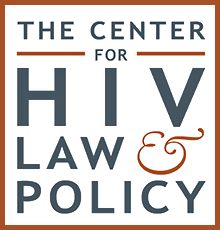Overview
Wyoming does not have any laws explicitly criminalising HIV ‘exposure’, non-disclosure, or transmission, and we are not aware of any prosecutions under general laws. However, the law does allow for people living with HIV to be mandatorily tested and treated, and to face additional penalties, under certain circumstances.
The law requires all people accused of crimes involving an exchange of bodily fluids to be examined and tested for STIs. If necessary, the accused can be compelled by court order to submit to testing. The results of the test are shared with the complainant, and can be used in criminal prosecution for ‘criminal infliction of or exposure to a sexually transmitted disease’. The law does not define what constitutes an exchange of bodily fluids, and there is no penalty outlined under the law.
Health laws in Wyoming also permit officials to compel people suspected of living with contagious diseases to be examined, treated, and quarantined to protect ‘public health’. Refusal to comply with such orders can result in a six month prison sentence and/or a fine.
For a detailed analysis of HIV criminalisation in Wyoming, as well as all other US states, see the Center for HIV Law and Policy report, HIV Criminalisation in the United States: a Sourcebook on State and Federal HIV Criminal Law and Practice.
Laws
Wyoming Statutes § 7-1-109
Examination for Sexually Transmitted Diseases Required in Certain Cases
(a) Upon the consent of a person accused of any crime wherein it is alleged that there has been an exchange of bodily fluids, that person shall be examined as soon as practicable, but not later than forty-eight (48) hours after the date on which the information or indictment is presented, for sexually transmitted diseases included within the list of reportable diseases developed by rule and regulation of the department of health pursuant to W.S. 35-4-130(b).
(b) For cases in which a person is accused of any crime wherein it is alleged that there has been an exchange of bodily fluids and the accused person is unwilling or unable to give consent as provided in subsection (a) of this section, or when, for any reason it is impractical to seek consent under subsection (a) of this section, the court may by warrant, upon a sufficient showing of probable cause by affidavit, at any time of day or night, order the medical examination of the accused person for sexually transmitted diseases included within the list of reportable diseases developed by rule and regulation of the department of health pursuant to W.S. 35-4-130(b). Testing for sexually transmitted diseases done under this subsection shall be conducted as soon as practicable, but no later than forty-eight (48) hours after the date on which the information or indictment is presented.
(c) Any person convicted of a sex offense shall, at the request of the victim, be examined as soon as practicable, but not later than forty-eight (48) hours after the conviction for sexually transmitted diseases included in the list specified in subsection (a) of this section. The victim shall make the request to the district attorney responsible for prosecuting the offense. If the offender is unwilling or unable to consent to the examination the district attorney shall petition the court for an order requiring the offender to submit to the examination.
(d) Any examination performed under this section shall be performed by a licensed physician or other health care provider. The examination shall be in accordance with procedures prescribed by the department of health under W.S. 35-4-130 through 35-4-134 and the examination results shall be reported to the appropriate health officer. Upon receipt of the examination results, the health officer shall notify the victim, the alleged victim or if a minor, the parents or guardian of the victim or the alleged victim. Additional testing under this section shall be performed as medically appropriate and shall be made available in accordance with the provisions of this section.
(e) Costs of any medical examination undertaken pursuant to this section shall be funded through the department of health. If the court finds that the offender is able to reimburse the department, the offender shall reimburse the department for the costs of any medical examination under this section.
(f) All results which are or can be derived from the examination ordered pursuant to this section are confidential, are not admissible as evidence and shall not be disclosed except:
(i) As provided by this section;
(ii) As provided by W.S. 35-4-132(d);
(iii) In a civil action for the negligent or intentional infliction of or exposure to a sexually transmitted disease;
(iv) In a criminal prosecution for the criminal infliction of or exposure to a sexually transmitted disease; or
(v) As otherwise provided by law.
